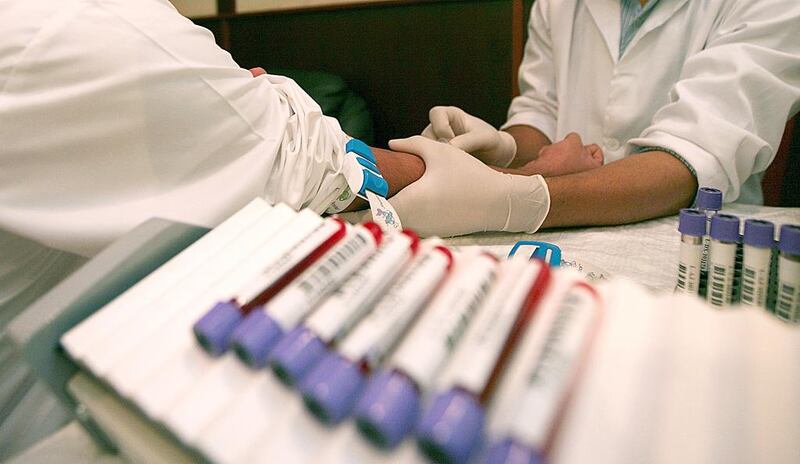DUBAI // Thalassaemia, the potentially fatal blood disorder inherited by babies, has been all but wiped out in Dubai.
Doctors attribute the virtual eradication of the condition to educational campaigns targeting medical staff and parents, and compulsory premarital screening for genetic diseases introduced in 2006.
“In the past three to four years the number of new cases … has reduced to zero to one case per year, as opposed to 14 to 18 cases per year,” said Dr Khawla Belhoul, director of Dubai Health Authority’s thalassaemia centre.
Thalassaemia is a recessive genetic disease: both parents must carry the defective gene to pass it on to their child.
It is caused by the deterioration and destruction of red blood cells. There are different types of thalassaemia: there may be no symptoms, or it may be a serious, lifelong condition requiring treatment.
“In 2007 we began exhaustive community outreach and awareness activities, which have directly resulted in reducing the number of thalassaemia cases in the emirate,” Dr Belhoul said.
“We conducted awareness activities and invited various groups to visit the centre as part of the outreach programme.”
Last year, 54 schools, two universities and 11 government departments visited the centre to learn more about the condition.
The centre also held five awareness activities in malls, eight campaigns at government institutions and two at universities.
School and university students have been the main focus, with years 9 to 12 visiting the centre each year.
“Reaching out to them to understand the disease and its lifetime complications has greatly helped to curb the rise in number of new cases,” said Dr Belhoul.
The children can be tested if they wish, to see if they are carriers. It is crucial this is done at an early age, she said.
If they test positive, with each pregnancy there is a 25 per cent chance that a child will be born with the disease; a 50 per cent chance the child will only be a carrier; and a 25 per cent chance the child will not be affected.
“Our message is clear – it is unadvisable for both partners with thalassaemia to get married because there are strong chances that all the babies born to that couple will carry the disease and we see several such cases,” she said.
“However, if only one person has thalassaemia it is still OK because the baby will be a carrier but will not have thalassaemia.”
The centre has 1,660 outpatients who do not require blood transfusions and 438 inpatients who require blood transfusions every two to three weeks.
Last year, 8,114 patient visits were recorded by the centre, 70 per cent of which were from adults and 30 per cent from children.
“Today, due to advances in treatment, patients lead a fairly normal life and we are proud of our patients’ achievements,” said Dr Belhoul.
“Moving forward, our aim is to enrich the lives of existing patients through treatment and emotional and psychological support, and to ensure that we receive no new cases, so that our future generation is free of this disease.”
nhanif@thenational.ae





